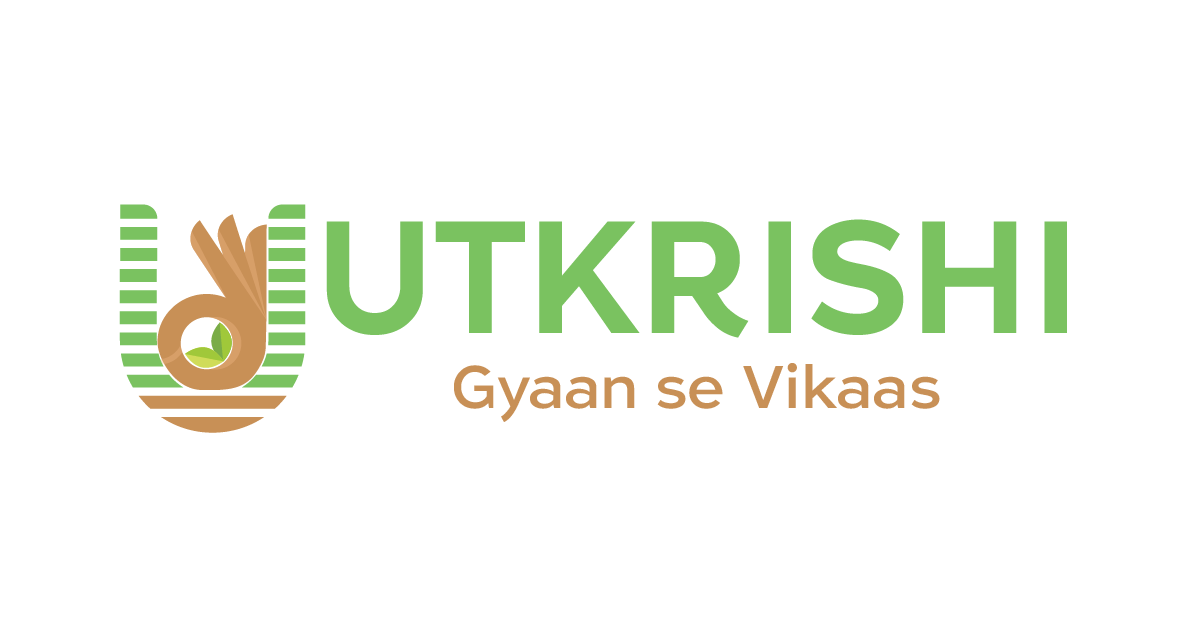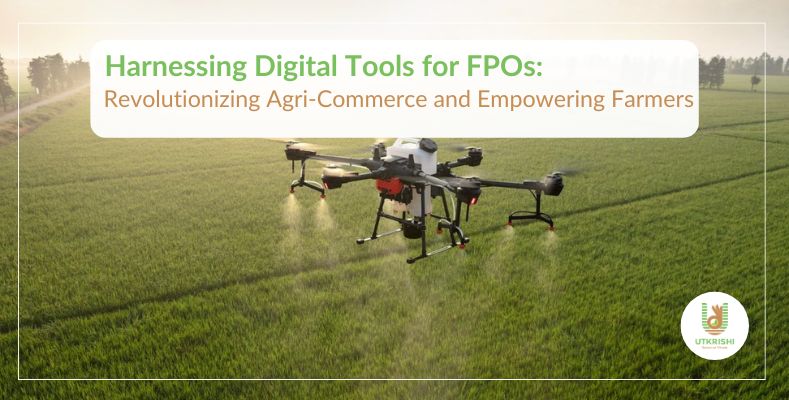Farmer Producer Organizations (FPOs) are at the heart of India’s agricultural transformation, acting as a collective voice for smallholder farmers and providing them with the tools and resources to thrive. However, as the agricultural landscape becomes more complex, FPOs need to adopt digital solutions to remain competitive and sustainable. From online procurement of inputs to advanced analytics and e-commerce, digitization offers a myriad of possibilities to enhance the efficiency, profitability, and resilience of FPOs.
1. Online Purchase of Agri Inputs: Streamlining Procurement
One of the first steps in the agricultural value chain is the procurement of essential inputs like seeds, fertilizers, and pesticides. Traditionally, this process involved dealing with multiple suppliers, often leading to delays, higher costs, and limited choices. The advent of online platforms has transformed this scenario.
FPOs can now purchase agricultural inputs directly from manufacturers or wholesalers online. This not only ensures competitive pricing but also broadens the range of available products. The convenience of online transactions reduces logistical challenges, allowing FPOs to maintain optimal inventory levels and pass on cost savings to their members.
2. WhatsApp Ordering: Simplifying Communication and Transactions
WhatsApp, a widely-used messaging platform, has become a powerful tool for FPOs. With its simple interface and real-time communication capabilities, WhatsApp is ideal for placing orders, managing supply chains, and facilitating group purchases.
FPOs can create dedicated WhatsApp groups for their members, enabling quick decision-making and instant updates. This platform also supports multimedia sharing, allowing farmers to send photos of crops or inputs, receive expert advice, and even confirm deliveries. WhatsApp’s accessibility makes it a practical solution for FPOs, particularly in regions where digital literacy may be limited.
3. IoT Devices: Smart Pumps with Analytics for Precision Farming
Water management is critical for agricultural productivity, especially in regions with limited water resources. IoT-enabled smart pumps are revolutionizing irrigation practices by providing precise control over water usage. These devices are equipped with sensors that monitor soil moisture, weather conditions, and water flow in real-time.
The data collected by these smart pumps can be analyzed to optimize irrigation schedules, ensuring crops receive the right amount of water at the right time. This not only enhances crop yields but also reduces water waste and lowers operational costs. For FPOs, implementing smart pump technology can lead to significant improvements in resource management and productivity.
4. Satellite-Based Crop Monitoring and Analytics: Enhancing Decision-Making
FPOs overseeing large tracts of farmland can greatly benefit from satellite-based crop monitoring. Satellite imagery provides a bird’s-eye view of crop health, allowing for early detection of issues such as pest infestations, water stress, and nutrient deficiencies.
By integrating satellite data with advanced analytics, FPOs can gain insights into crop performance, identify problem areas, and make timely interventions. This proactive approach reduces crop losses, improves yields, and ensures that farmers receive the necessary support throughout the growing season. Moreover, satellite monitoring helps FPOs plan better, manage risks, and enhance overall farm productivity.
5. Machine Learning-Based Pest Diagnosis: Targeted and Efficient Crop Protection
Pest and disease outbreaks can devastate crops and significantly impact farmer incomes. Traditional methods of pest control often involve blanket spraying of pesticides, which can be costly and environmentally damaging. Machine learning-based pest diagnosis offers a smarter alternative.
By analyzing images of affected crops, machine learning algorithms can accurately identify specific pests and diseases. FPOs can use this technology to provide instant diagnoses to farmers, recommending targeted treatments that minimize pesticide use and costs. This precision approach not only improves crop health but also promotes sustainable farming practices.
6. Digital Marketing Platforms: Building Brand and Market Presence
For FPOs, reaching consumers directly is crucial for improving profitability and ensuring fair prices for their products. Digital marketing platforms enable FPOs to build an online presence, showcase their products, and engage with a broader audience.
Through social media, websites, and online advertising, FPOs can highlight their unique value propositions, such as organic or fair-trade produce, and differentiate themselves in the market. Digital marketing also allows FPOs to share success stories, connect with urban consumers, and build trust, thereby expanding their customer base and increasing sales opportunities.
7. E-Commerce for Agri Products: Expanding Market Reach
E-commerce has opened new avenues for FPOs to sell their products beyond local markets. By leveraging online marketplaces, FPOs can reach consumers across regions and even globally, ensuring better prices and reducing the reliance on intermediaries.
E-commerce platforms handle the entire sales process, from order placement to payment processing and logistics. This simplifies the selling process for FPOs, allowing them to focus on quality production and customer satisfaction. Moreover, e-commerce enables FPOs to offer a wider range of products, catering to diverse consumer preferences and driving revenue growth.
8. ERP for FPO Management: Streamlining Operations and Enhancing Efficiency
Managing an FPO involves juggling multiple functions such as finance, procurement, sales, and supply chain management. An Enterprise Resource Planning (ERP) system integrates these functions into a single platform, providing a comprehensive solution for FPO management.
ERP systems designed for FPOs streamline operations by automating routine tasks, improving traceability, and ensuring data accuracy. By centralizing information, ERP systems enable better decision-making, resource optimization, and risk management. For FPOs, adopting an ERP system can lead to significant improvements in operational efficiency and transparency, ultimately driving growth and sustainability.
9. Access to Formal Credit: Empowering Farmers with Financial Tools
Access to credit is a major challenge for smallholder farmers, often limiting their ability to invest in quality inputs or expand their operations. Digitization plays a crucial role in bridging this gap by facilitating access to formal credit for FPOs and their members.
Digital platforms can maintain detailed records of transactions, crop performance, and financial statements, which help build a credit history for FPOs and farmers. This, in turn, makes it easier for them to secure loans from banks and financial institutions. Additionally, digital platforms offer tailored financial products such as crop insurance, microloans, and savings schemes, providing farmers with the financial tools they need to grow and prosper.
Conclusion
The digital revolution in agriculture offers FPOs unprecedented opportunities to enhance their operations, increase profitability, and empower their members. From online input procurement and smart farming technologies to digital marketing and e-commerce, the possibilities for FPOs are vast. By embracing these digital tools, FPOs can not only improve their efficiency and market reach but also play a pivotal role in driving sustainable and inclusive agricultural growth. As FPOs continue to evolve, those that harness the power of digitization will be at the forefront of transforming India’s agricultural landscape, ensuring a prosperous future for the millions of farmers they represent.


